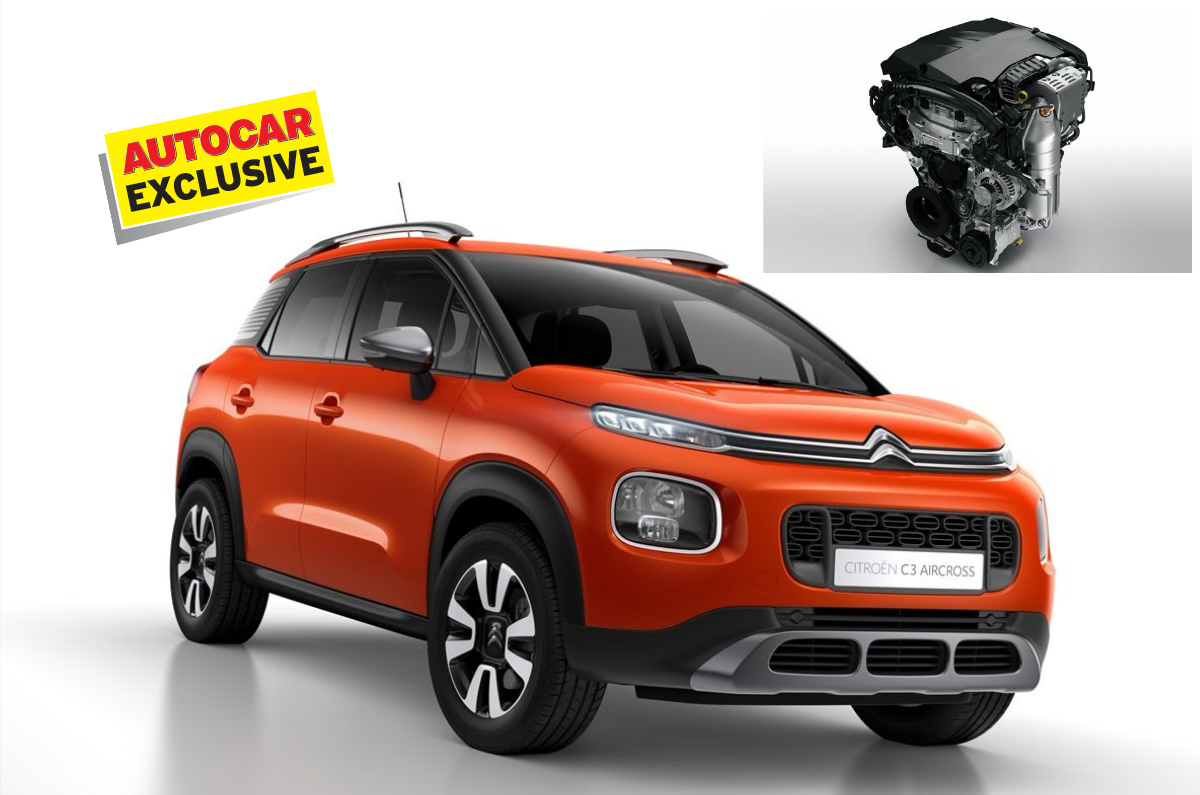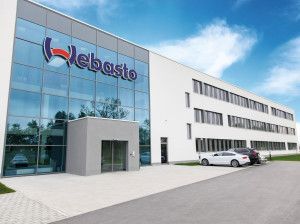No diesel in Citroen’s mass market range for India

Citroen will give diesels a miss in the mass market segment as part of its fuel strategy for India, even though its debut offering, the C5 Aircross premium SUV, will have a diesel powertrain. Explaining the move, Saurabh Vatsa, Senior Director, Marketing Operations and Corporate Communications, Citroen India, told our sister publication Autocar Professional, “We are working on diesel and gasoline engines, both. Diesel will come in the C5, and the C-Cubed programme is primarily gasoline (petrol) at this point in time.”
- Falling demand prompted Citroen to abandon diesels in lower segments
- Regulatory framework panning diesels also played a key role
- Citroen C21 compact SUV to sport a turbo-petrol engine
Citroen India’s reluctance for diesels
Vatsa attributed the company’s powertrain strategy to the increasing share of petrol vehicle sales in the country. He said, “The demand for diesel vehicles has been steadily falling. If you look at the mix (of petrol and diesel passenger vehicle sales) from 10 years ago when it was almost 55:45, it's 75:25 now and rising very quickly to 80:20 in favour of gasoline.”
He added, “It doesn't make sense to be out of the market. When you are coming in as a new player, you are looking at the bigger chunk, so obviously you're focusing on 80 percent of the market, not the 20 percent.” Consequently, Citroen is opting to introduce only petrol engines in the mass volume models which are being developed under its ‘C-Cubed’ programme.
The automaker believes that higher costs have eroded the advantage of running diesel vehicles for most buyers. “It is important to see what the customer is looking at in terms of the rupee value benefit that he gets out of a diesel engine today. Despite us saying that diesel has its benefits, the customer does his own equations. With the pricing of gasoline and diesel fuel almost equivalent, the customer is really not getting an advantage today,” commented Vatsa.
Moreover, the senior executive mentioned that the case for diesels is further weakened by the regulatory framework, which is more biased towards petrols in certain instances. “In key metros like NCR, which is a large chunk of the market, you cannot have a diesel vehicle ownership beyond 10 years, compared to a petrol vehicle which has its registration valid for 15 years. Today, a lot of customers are shifting, even for premium luxury vehicles, and asking for petrol variants because when they calculate the cost benefit of a five-year reduction in ownership period, it's a huge impact,” he concluded.
Upcoming Citroen models in India
Citroen is betting on India in a big way as part of its top-down strategy. In January-March 2021, the company will launch the C5 Aircross which, priced above Rs 30 lakh (estimated, ex-showroom), will go up against the likes of the Volkswagen Tiguan Allspace and Skoda Kodiaq. The ‘locally assembled’ premium SUV will be powered by a fully imported 2.0-litre diesel engine.
The automaker manufactures a 1.5-litre diesel mill at the PSA-CK Birla joint production facility in Hosur, Tamil Nadu. While this unit was earlier expected to make an appearance across the company’s more mainstream models in India, its latest statement means that there will be no ‘locally produced’ diesel Citroens in our market.
As such, the brand’s first made-for-India model, the C21 compact SUV, will be powered by a 1.2-litre turbo-petrol engine. The sub-4m model, which has already been spotted testing on our roads, will arrive later in 2021 and face stiff competition from the likes of the Kia Sonet, Hyundai Venue and the Maruti Suzuki Vitara Brezza. With localisation levels as high as 90-95 percent, it is expected to be priced competitively in the Rs 7-11 lakh range (estimated, ex-showroom).
Citroen is also working on its Hyundai Creta rival for our market. The model is slated to feature the same 1.2-litre turbo-petrol unit (albeit in a higher state of tune), and is not expected to arrive before 2022. Thereafter, the company is also said to be mulling over the premium hatchback and sedan categories, both of which have seen a dwindling diesel demand in recent times.
How do Citroen’s rivals stack up?
Citroen’s petrol-only strategy is shared by many of its rivals including Maruti Suzuki, which stopped producing diesel vehicles from April 1, 2020. Facing challenges in meeting BS6 emission norms, Renault, Nissan, Volkswagen and Skoda have ditched diesels and gone petrol-only, even for their larger SUV models.
However, the exit of many players from the diesel segment has also created an opportunity for some rivals to grab a bigger chunk of the diesel pie. Hyundai and Kia are betting big on diesels, with the Korean duo seeing considerable diesel demand for models like the Hyundai Creta, Kia Seltos, Hyundai Venue and the Kia Sonet. Mahindra is another player with a significant diesel line-up in our market but it’s Tata Motors that has made the most of the situation with its BS6 diesel line-up. The Harrier is the only diesel-automatic and in its segment and the Altroz diesel has cashed in on the absence of diesel competition. It seems that the reason those companies have given diesel a miss is more due to technical challenges in meeting BS6 norms than market dynamics.
Also see:
Citroen testing 1.2-turbo petrol engine in India with Berlingo MPV
Citroen C5 Aircross India trial production begins
India-bound Citroen C5 Aircross to get only 2.0 diesel engine



No comments: